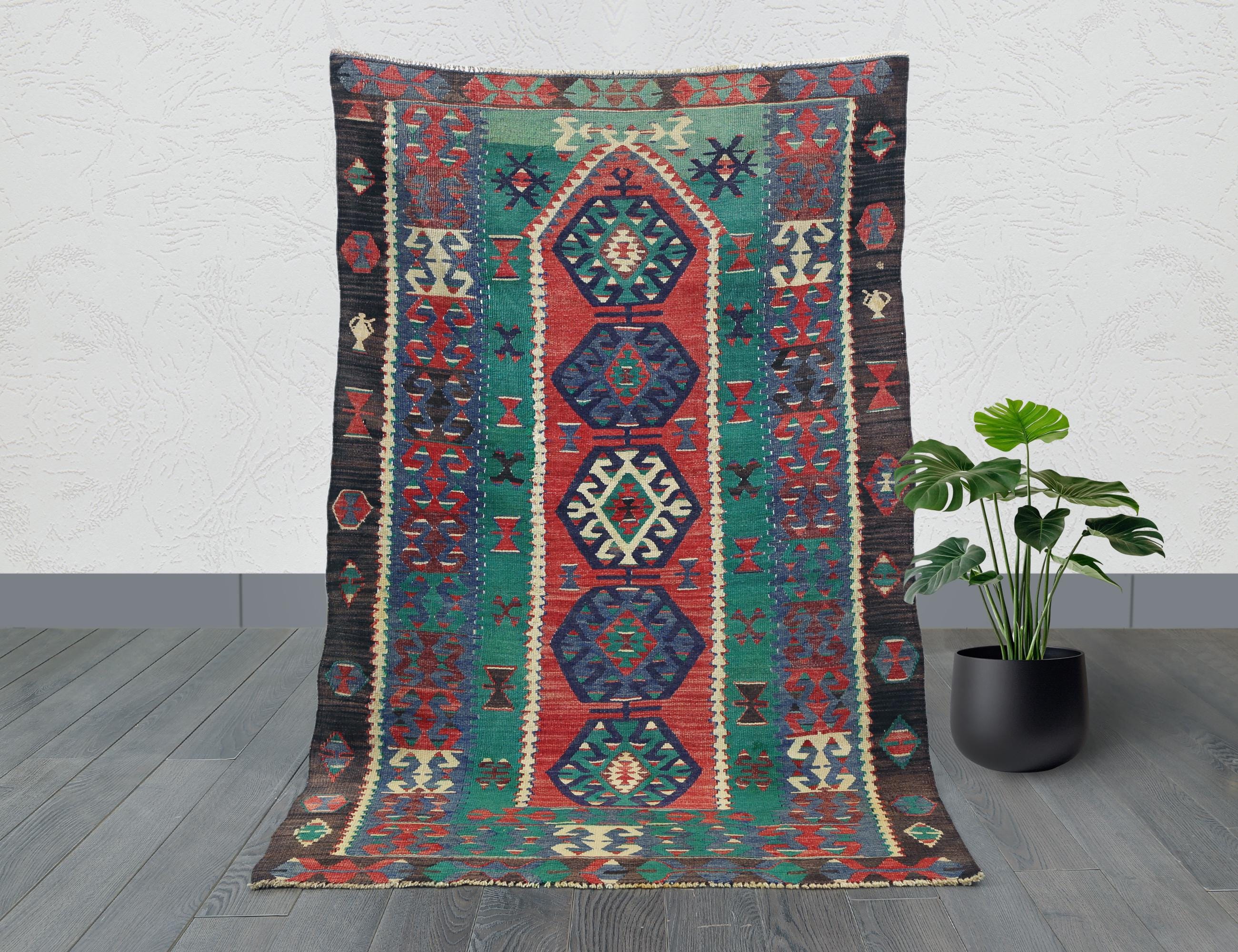
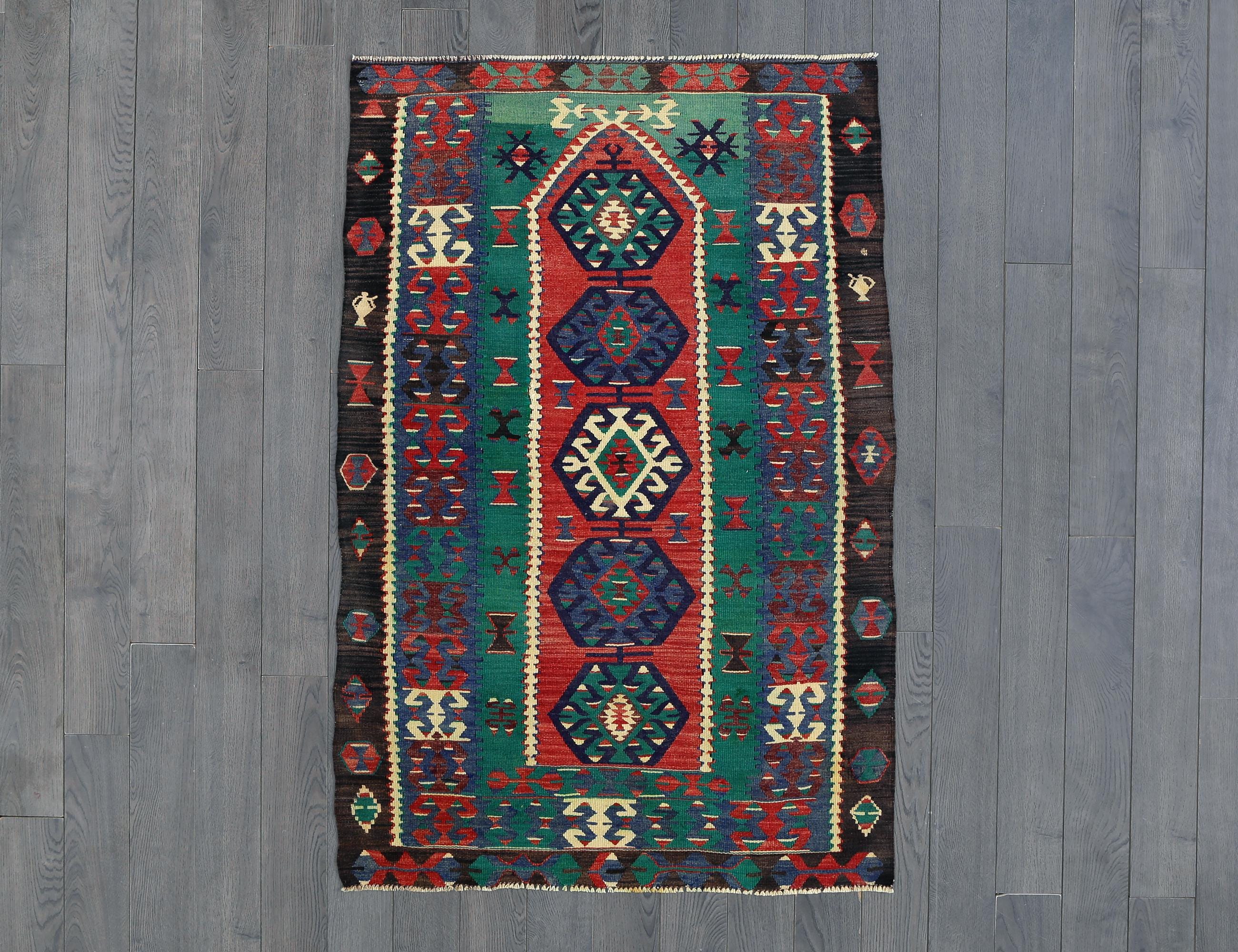
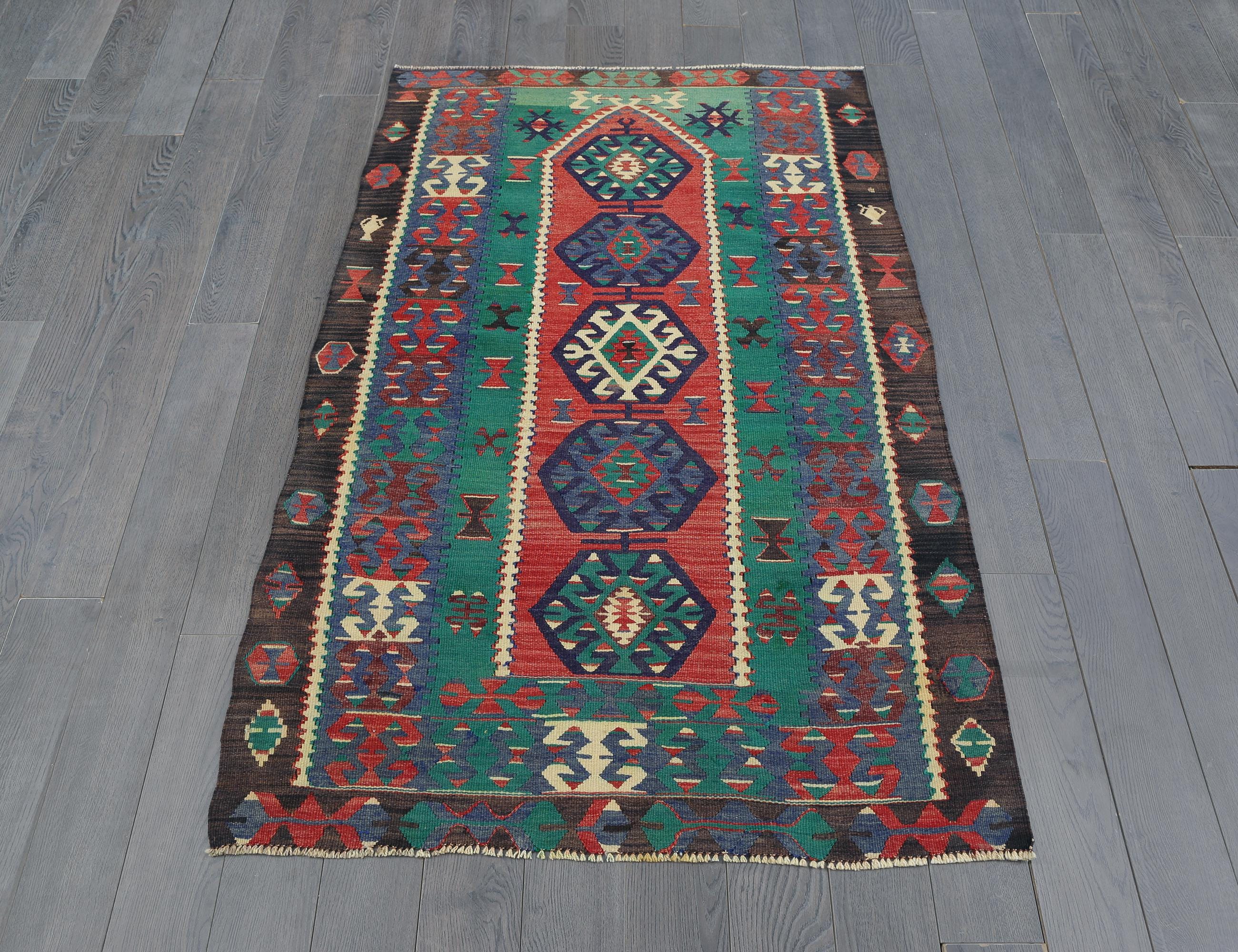
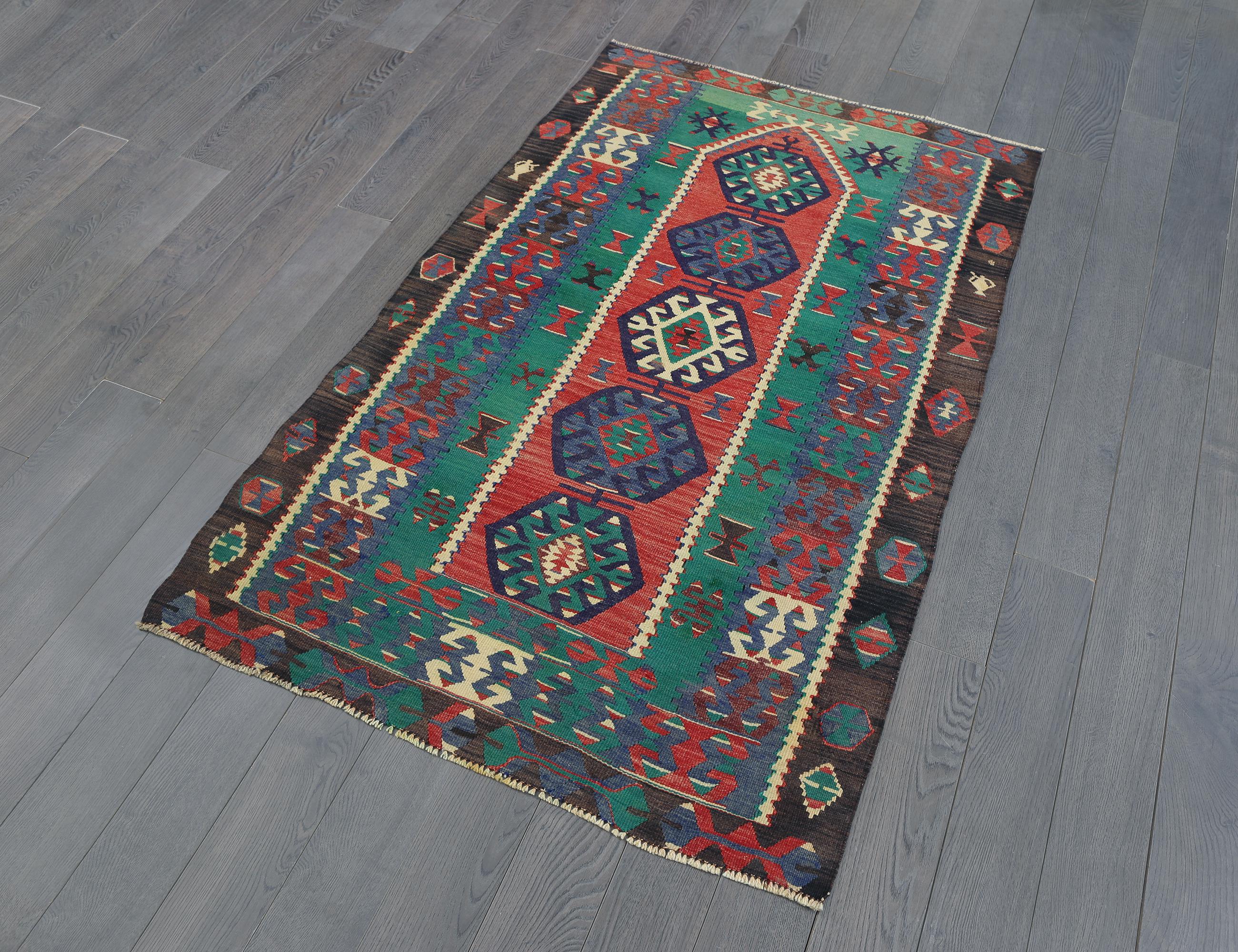
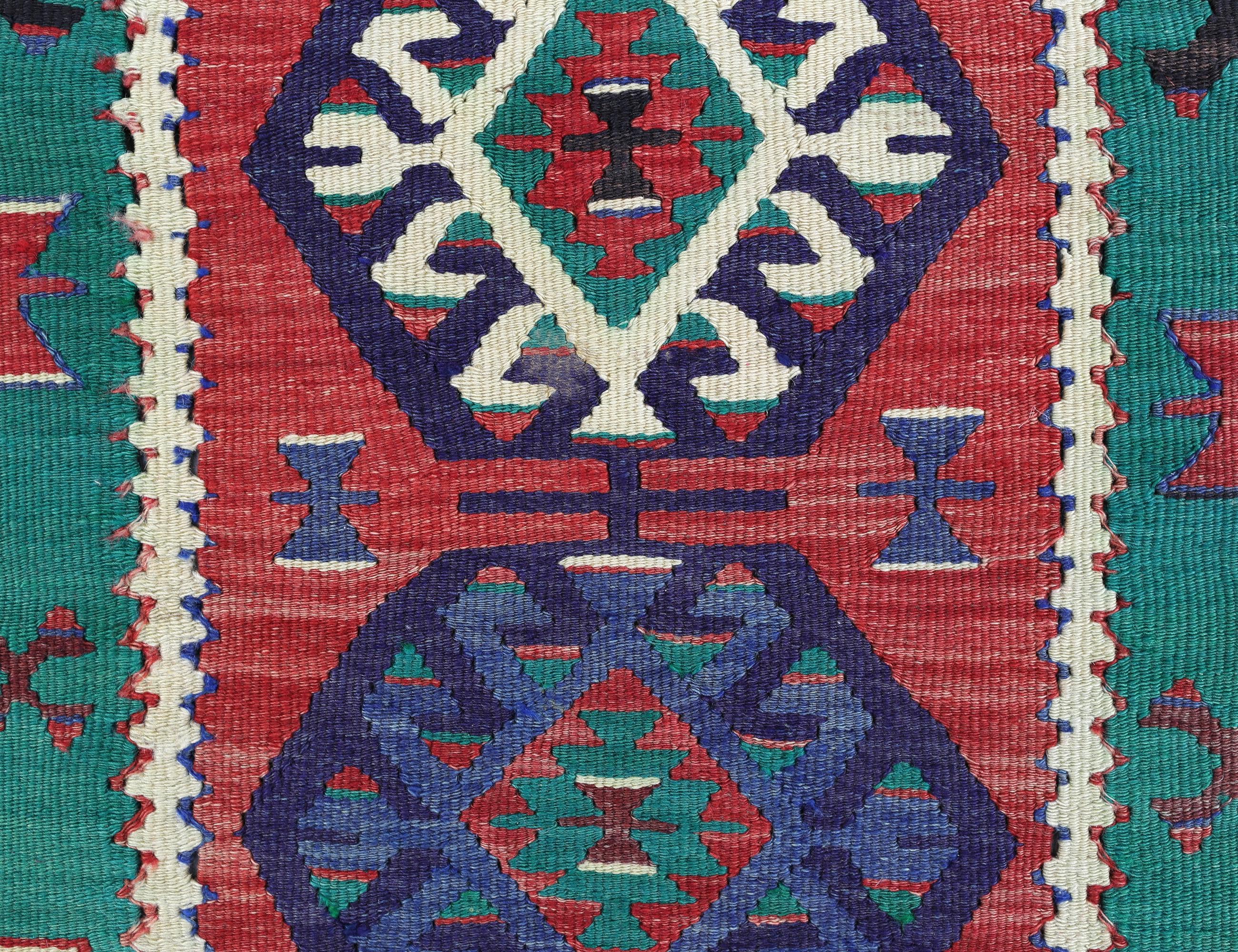
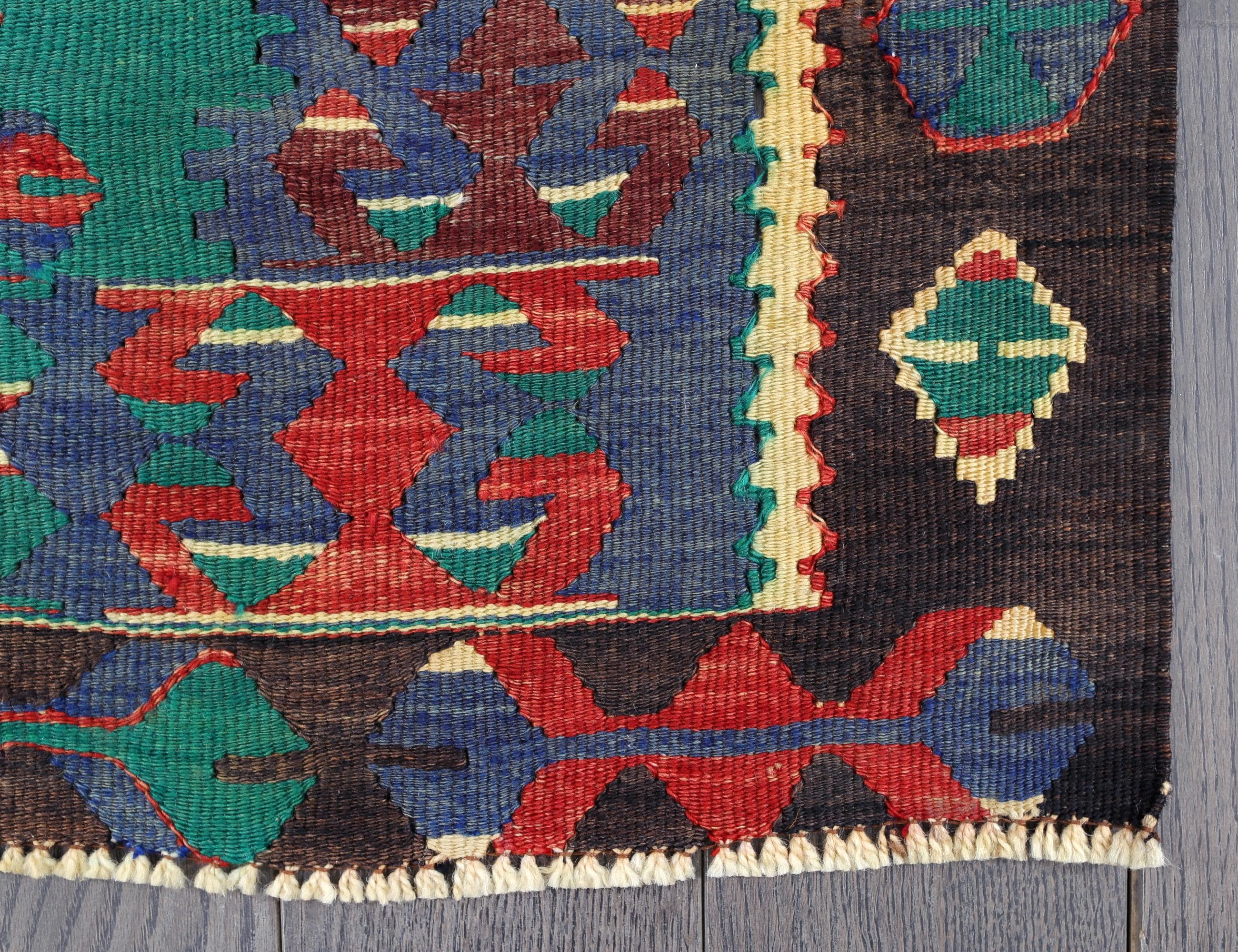
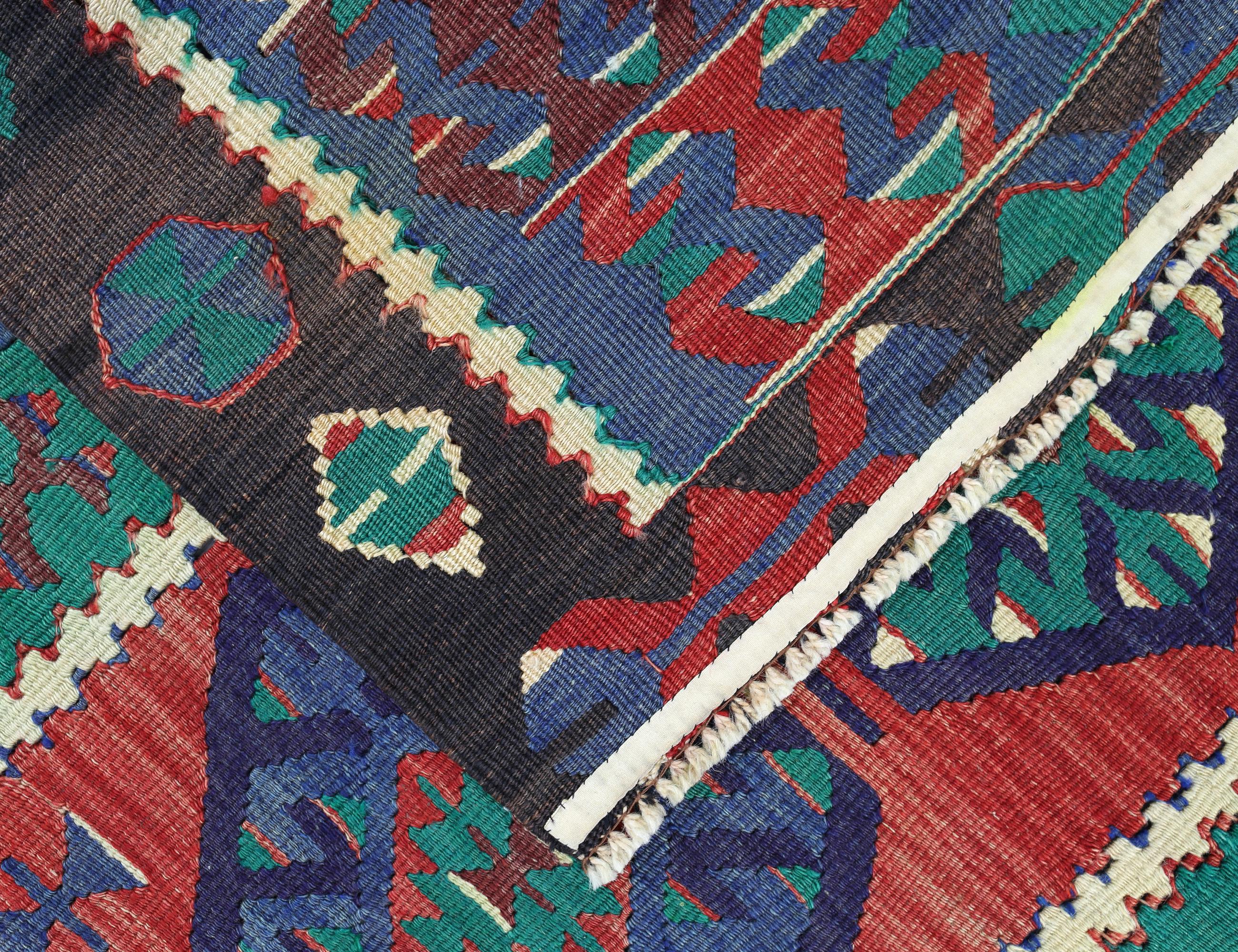
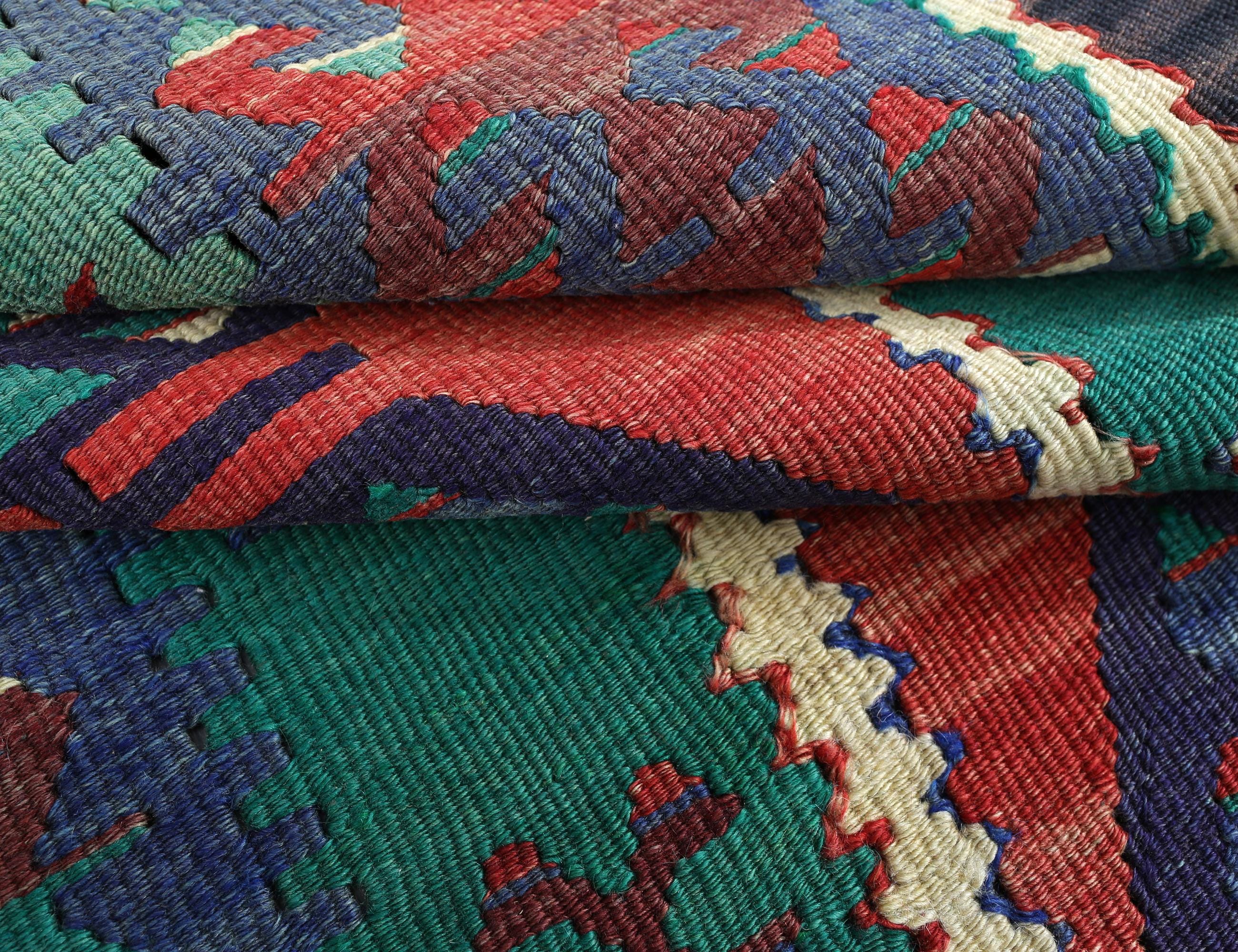
Handwoven Caucasian Kilim Rug: Green & Red Tribal Medallions, 5'2" x 3'6"
$700.00 $1,750.00
Sourced from a small village collection and carefully photographed in natural light, this is an authentic hand-woven flatweave (kilim)—not machine made. Its saturated greens, madder reds and indigo blues frame a striking column of octagonal tribal medallions. The piece was woven on a narrow village loom and finished with braided fringes and corded selvedges, showing the unmistakable hand of an experienced nomadic weaver.
Weaving tradition & construction.
The rug is a classic Caucasian/Azeri kilim from the Shirvan–Kuba area (eastern Caucasus). The structure is slit-tapestry kilim: areas of color are woven independently and meet along crisp vertical slits (you can see these tiny slits and overcasting in the close-ups). Side cords are twined and overcast, with simple braided warp fringes at the ends—typical of village looms.
Design theory (naqsha).
A tall, red central panel holds a stack of octagonal and diamond medallions, flanked by emerald side stripes dotted with hourglass (elibelinde) and ram’s-horn devices for strength, fertility and protection. The outer dark borders carry hooked diamonds and “S/dragon” motifs—apotropaic signs meant to ward off the evil eye. Small eight-pointed star rosettes appear in the guard borders. The crisp geometry and powerful color blocking are signatures of Caucasian tribal aesthetics.
Dyes & materials.
The face is hand-spun sheep’s wool with lively abrash (natural shade variations) visible in the green and blue bands. Warps and wefts are wool; the handle is supple yet sturdy. The palette reads as predominantly traditional vegetable dyes (madder red, indigo blue, undyed ivory, walnut/iron brown); given its mid-century age, a touch of early synthetic in a few accent blues/purples is possible—common and accepted for the period.
Age & authenticity.
Judging by the yarn spin, palette, and wear to the selvedges, this piece dates to mid-20th century (c. 1950s–1970s). It is wholly hand woven; there are no machine-stitched parts. The patterning and color balance align closely with village weavings from the Shirvan–Kuba zone.
Condition.
Vintage-good: flat and ready for use. Minor edge rubs, very small wave to one side, and scattered light fiber fuzz consistent with age; ends and side cords are intact. No holes, odors, or stiff areas. The abrash you see is natural dye character, not damage.
Features:
Origin: Eastern Caucasus (Shirvan–Kuba tradition)
Type: Hand-woven kilim (flatweave, slit tapestry)
Size: 158 cm x 106 cm (approx 5'2" x 3'6")
Materials: Hand-spun wool on wool
Weave details: ~16–18 weft rows per inch (6–7 per cm); slit-tapestry joins visible along color boundaries; twined/overcast selvedges; braided warp fringes
Thickness/handle: About 3–4 mm, pliable yet durable
Pile: None (flatweave)
Design: Central column of octagonal/diamond guls with ram’s-horn, hourglass, S/dragon and star motifs; multiple geometric guard borders
Estimated age: c. 1950s–1970s
Condition: Vintage-good with minor age wear and beautiful abrash; no structural issues
Authentic Caucasian tribal geometry with a rare green & red palette that pops in modern interiors
Lightweight flatweave—easy to layer, flip, and style
Naturally dyed wool with lively abrash for depth and character
Versatile size works as an entry rug, office accent, bedside piece, or layered living-room statement
Ethnographic motifs (ram’s horn, hourglass, stars, S-forms) for strength, fertility, guidance, and protection
Care instructions (flatweave wool)
Use a rug pad to prevent slippage and reduce wear
Vacuum with suction only (no beater bar); vacuum both sides occasionally
Rotate every 3–6 months for even exposure to light and traffic
Blot spills immediately; spot clean with cold water and a small amount of wool-safe soap
For deeper cleaning, use a professional hand-wash service experienced with flatweaves
Avoid prolonged direct sunlight to preserve the natural dyes
Bring home a genuine work of tribal textile art—woven to last, designed to inspire. If you’d like additional photos, a brief video, or a custom pad, just ask.
Shipping from Pakistan
Processing time
5-7 business days
Customs and import taxes
Buyers are responsible for any customs and import taxes that may apply. I'm not responsible for delays due to customs.
Payment Options
Returns & Exchanges
I don't accept returns, exchanges, or cancellations
But please contact me if you have any problems with your order.
